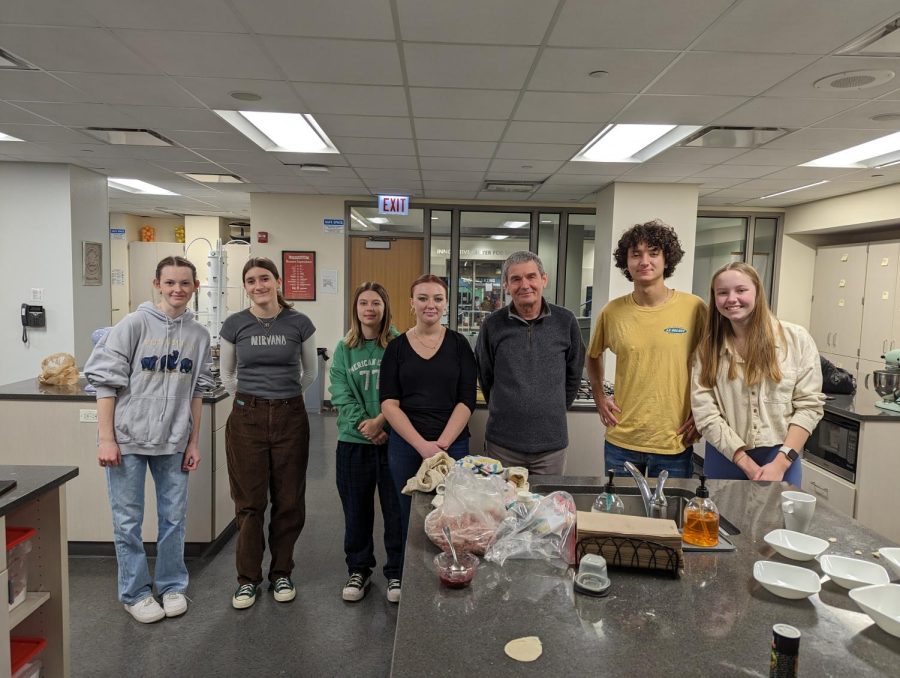Russian Club strives for linguistics, not politics
Despite controversy, club creates safes space for members
Spektor
New Trier’s Russian Club students met in the Culinary Lab to make Pelmeni, traditional Russian meat dumplings.
The soft sound of shuffling of cards. The tension of competitiveness in the air. The hushed chatter and laughter of club members. All of these are sounds of home for members of the Russian club.
For its members, the club is a relaxing place to be. They often play card games, watch Russian movies, eat Russian food, have tea parties, and collaborate with other clubs.
The club has run into issues with a misunderstanding- they do not associate with the Russian government nor do they as a club, or as individuals support the Russian invasion on Ukraine. Senior co-president Madeline McKenna, states,
“It’s not about Russia, the country, it’s about the Russian language.”
But struggle is not new to the Russian club, Russian Americans have dealt with issues of bigotry and exclusion long before the club was formed. Boris Spektor, the sponsor of the Russian club, had recounted his experience as a Ukrainian-American immigrant after the fall of the Soviet Union.
“And at that time, after the fall of the Soviet Union, nobody from Russia wanted to accept it. They wanted to be more American than Russian-American,” he said.
But Spekter became part of the solution to this problem. In 1995, he made a decision to start the Russian club.
“Kids came to me and said, ‘Would you be able to sponsor Russian club? Because there is different clubs and there is no Russian club,” Spektor recounted.
Since the Russian invasion of Ukraine, there has been stigma around Russian identities. Many Americans see Russians as the enemy. However, as news cycles have dropped information on the war, many were able to forget about the war almost altogether.
But that’s not the case for many club members. Spektor’s life has been different since the start of the Russian-Ukraine war on Feb. 24, 2022. Since then, for him following the news became a huge part of his life, even when most of America has moved on.
“There was a time where I could not look at the news. But now I start my day with the news and go to bed with the news,” he said.
But through the struggles and the stigma, Spektor and his club remain hopeful and set on keeping the club alive, despite the challenges. At the beginning of the war, the club had a choice to make, to rebrand or to stick to it.
“It was strange to call it Russian club. And then I decided I should keep it because there are kids who feel comfortable calling it Russian club and being in the Russian club,” Spektor said.
Spektor hasn’t stopped advertising the club,or to spread more positivity about Russian heritage. So next time you’re walking around the school, you might see a poster for it on the TV screens.
“I keep it because it’s a little bit of positivity. I could move it, but I feel like it’s necessary in our time to have some positivity,” he said.









































